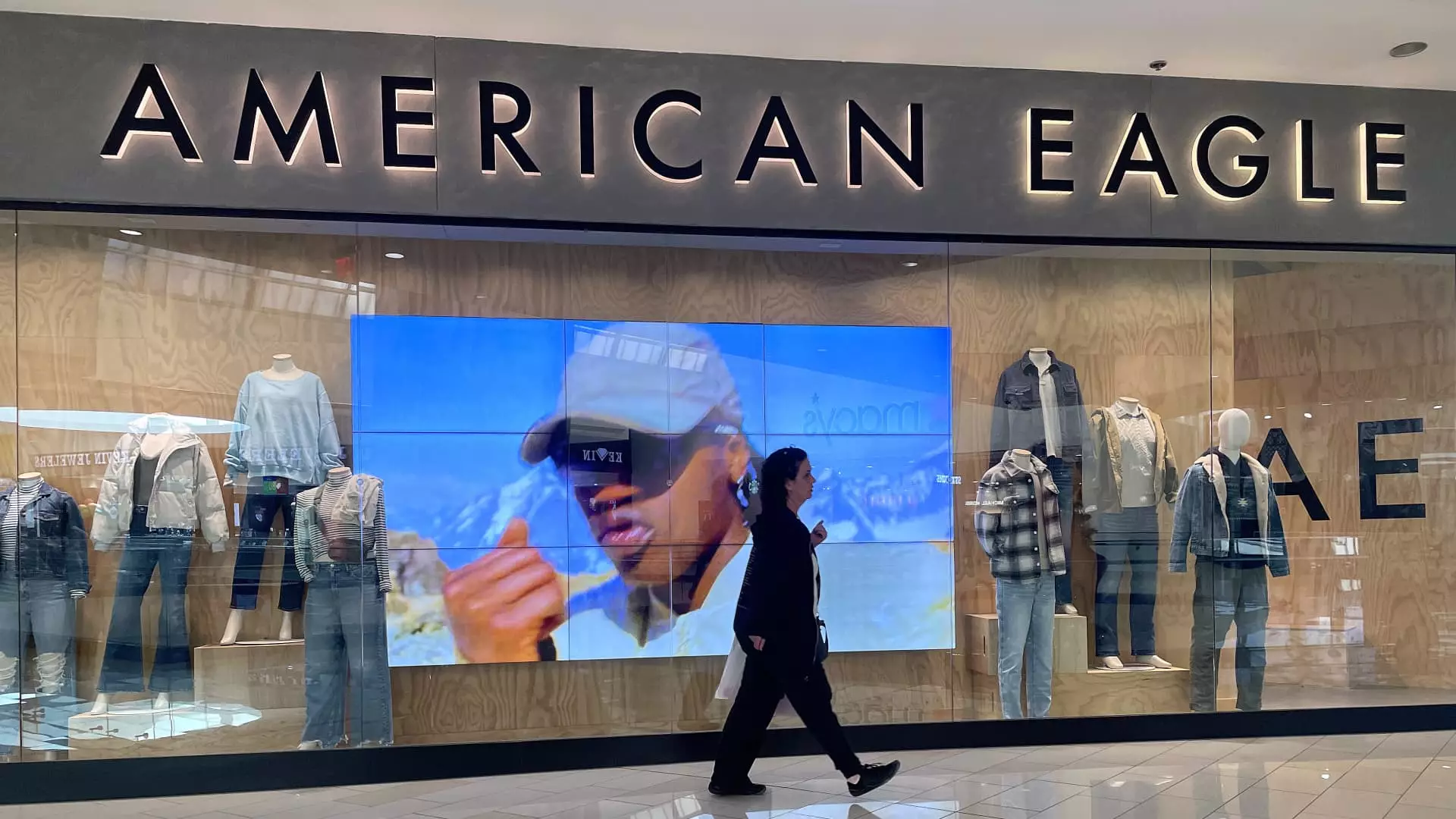In a dramatic confrontation that highlights the vulnerabilities faced by iconic brands in the digital marketplace, American Eagle Outfitters has initiated legal proceedings against Amazon, accusing the e-commerce powerhouse of trademark infringement. Filed in the U.S. District Court for the Southern District of New York, the lawsuit underscores not only the competitive tensions between traditional retail brands and online giants but also raises critical questions about consumer trust and market integrity.
At the heart of American Eagle’s grievance lies the claim that Amazon has engaged in “flagrant, unauthorized use” of their Aerie clothing line’s branding. The lawsuit asserts that the e-commerce juggernaut has deliberately manipulated search results to present consumers with listings for “inferior quality knock-offs” of Aerie’s products when shoppers search for the brand online. The grievance lays bare a significant concern among retailers: the peril of brand dilution in an increasingly crowded online marketplace.
American Eagle, which has been a staple in American fashion since its inception in 1977, successfully launched the Aerie line in 2006, aiming to carve out a distinct identity that resonates with ethically-minded and body-positive consumers. The company contends that by allowing third-party sellers to list counterfeit versions of Aerie items—such as yoga pants, loungewear, and lingerie—Amazon is misleading shoppers and undermining the brand’s hard-won reputation.
The complaint indicates that searches for Aerie products on platforms like Google often yield sponsored links directing customers to Amazon. However, these links, as outlined in the lawsuit, fail to deliver authentic Aerie merchandise. Instead, consumers are offered what American Eagle describes as replicas or “dupes” that undermine the quality and aesthetic of the original line.
American Eagle alleges that, even after notifying Amazon of these infringing listings, the company simply rebranded the items with misspellings of the Aerie trademark—such as “Aeries,” “Arie,” or “Aries”—demonstrating a failure to rectify the issue but instead opting for a sleight of hand to continue profiting from Aerie’s brand equity. This situation forebodes a worrying trend wherein counterfeit goods are normalized in the competitive landscape, erasing the distinctions between genuine articles and imitations.
This lawsuit is not an isolated incident; rather, it aligns with a growing narrative of frustration among established brands grappling with the repercussions of online sales platforms. History showcases similar complaints from other well-known companies, like Birkenstock and Daimler AG, which have taken proactive measures to distance themselves from Amazon due to rampant counterfeiting issues. This pattern suggests a systemic problem involving third-party sellers within Amazon’s expansive marketplace, notorious for hosting a vast array of products, many of which may be counterfeit.
As Amazon increasingly allows sellers to use its platform for distribution, the burden of protecting intellectual property appears to shift more heavily onto the brands themselves, raising concerns about accountability and oversight. The prominence of counterfeit goods poses significant risks, not just to brand integrity but also to consumer safety—an issue that has prompted Amazon to intensify its efforts in policing potential infringements via legal channels and enhanced trademark protection capabilities.
American Eagle’s demands for an injunction and financial compensation reflect not merely a desire for damages but a plea for safeguarding their brand reputation and consumer trust. The outcome of this high-stakes legal battle could set a vital precedent for how e-commerce platforms manage third-party sellers, particularly in issues regarding brand protection and consumer safety.
As this case unfolds, it will serve as a critical touchstone for the future of retail and online commerce. Ultimately, it forces a reckoning not just for Amazon, but for the entire landscape of online retail, challenging e-commerce platforms to reevaluate their responsibility toward the brands that fuel their business model. The ongoing evolution of the digital marketplace must prioritize transparency and accountability to ensure that the consumer shopping experience remains rooted in authenticity, fostering a healthy environment for both consumers and brands alike.


Leave a Reply